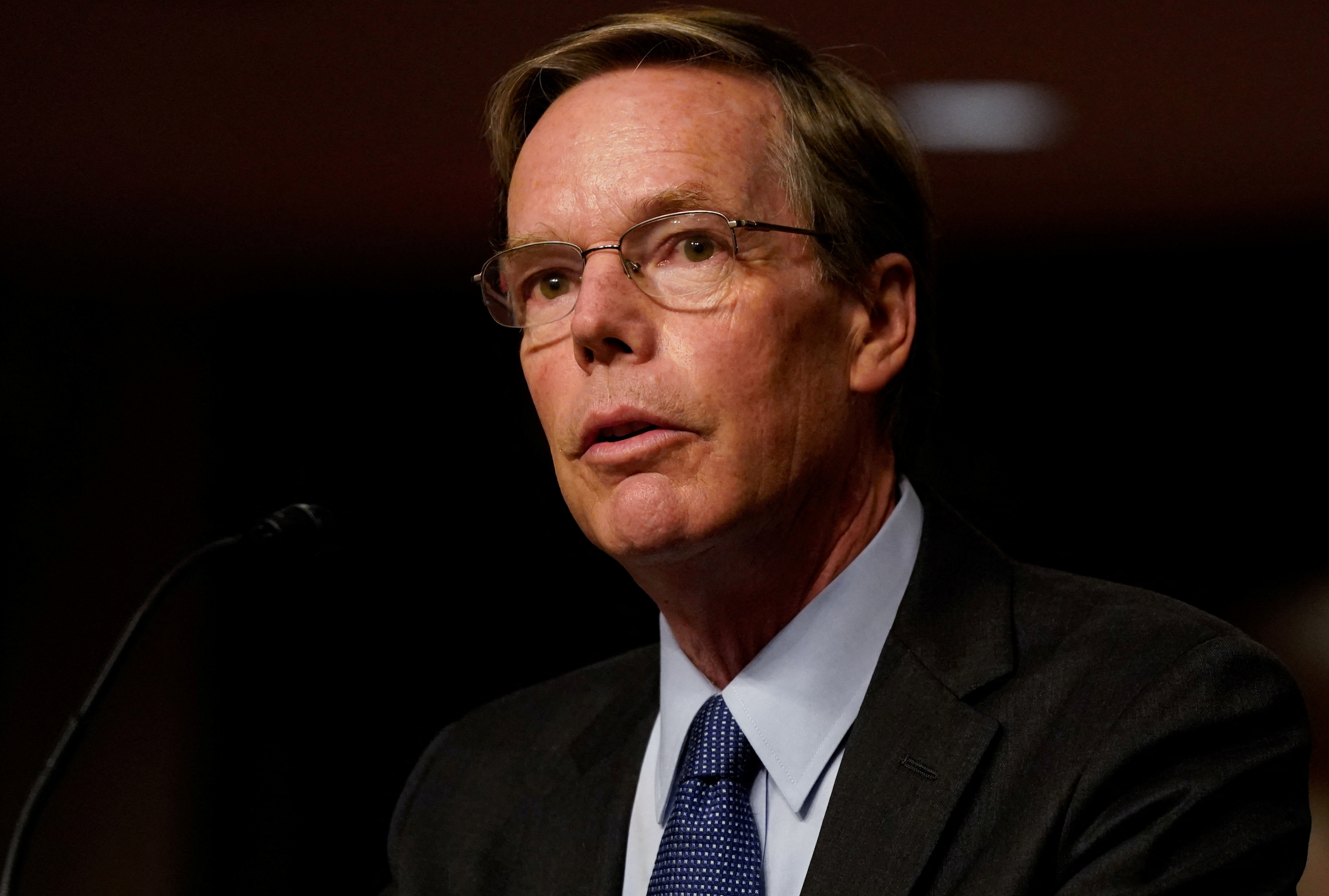
Chinese hackers breach US ambassador's emails, WSJ reports
PHOTO CAPTION: Former ambassador to NATO Nicholas Burns gives his opening statement during the Senate Foreign Relations Committee hearing on his nomination to be the U.S. Ambassador to China, on Capitol Hill in Washington, U.S. October 20, 2021. REUTERS/Elizabeth Frantz
WASHINGTON (Reuters) -Beijing-linked hackers accessed the email account of the U.S. ambassador to China in an espionage operation thought to have compromised at least hundreds of thousands of U.S. government emails, the Wall Street Journal (WSJ) reported on Thursday.
Daniel Kritenbrink, the assistant secretary of state for East Asia, was also hacked in the wider spying operation disclosed this month by Microsoft, the newspaper said, citing people familiar with the matter.
Asked about the reported breach of the two diplomats' accounts, the State Department declined to give any details and said its investigation of the spying operation was going on.
U.S. Ambassador Nicholas Burns' embassy in Beijing referred Reuters to remarks made by Secretary of State Antony Blinken this month when he said the U.S. has "consistently made clear to China as well as to other countries that any action that targets the U.S. Government or U.S. companies, American citizens, is of deep concern to us, and we will take appropriate action in response."
A spokesperson for China's embassy in Washington said China consistently opposed hacking and it rejected "groundless" speculation about the source of cyber attacks.
"China firmly opposes and combats cyber attacks and cyber theft in all forms. This position is consistent and clear," spokesperson Liu Pengyu said in an emailed response to Reuters.
"Identifying the source of cyber attacks is a complex technical issue. We hope that relevant sides will adopt a professional and responsible attitude ... rather than make groundless speculations and allegations."
Before the WSJ report appeared, Kritenbrink was asked at a congressional hearing on U.S. China policy whether he could rule out that his or his staff's emails were targeted in the Microsoft hack.
"I can't comment on an investigation that's underway being conducted by the FBI, but no, I will not rule it out," Kritenbrink said.
Burns and Kritenbrink join U.S. Commerce Secretary Gina Raimondo as the only publicly named victims of the espionage campaign, which prompted a warning by Washington's top diplomat to his Chinese counterpart.
FLAW IN CODE
Microsoft said last week that Chinese hackers misappropriated one of its digital keys and used a flaw in its code to steal emails from U.S. government agencies and other clients.
The company did not immediately return a message seeking comment on the WSJ report.
The breach has thrown Microsoft's security practices under scrutiny, with officials and lawmakers calling on the Redmond, Washington-based company to make its top level of digital auditing, also called logging, available to all its customers free of charge.
Microsoft said in a statement late on Thursday that it was taking the criticism on board.
Last week, White House National Security Council spokesperson Adam Hodge said an intrusion in Microsoft's cloud security "affected unclassified systems," without elaborating.
"Officials immediately contacted Microsoft to find the source and vulnerability in their cloud service," Hodge added.
The State Department "detected anomalous activity" and "took immediate steps to secure our systems," a department spokesperson said in a statement at the time.
(Reporting by Shubhendu Deshmukh in Bengaluru and Raphael Satter, Simon Lewis, David Brunnstrom and Chris Sanders, in Washington; Additional reporting by Laurie Chen in Beijing; Editing by Susan Heavey, Stephen Coates and Jamie Freed)









